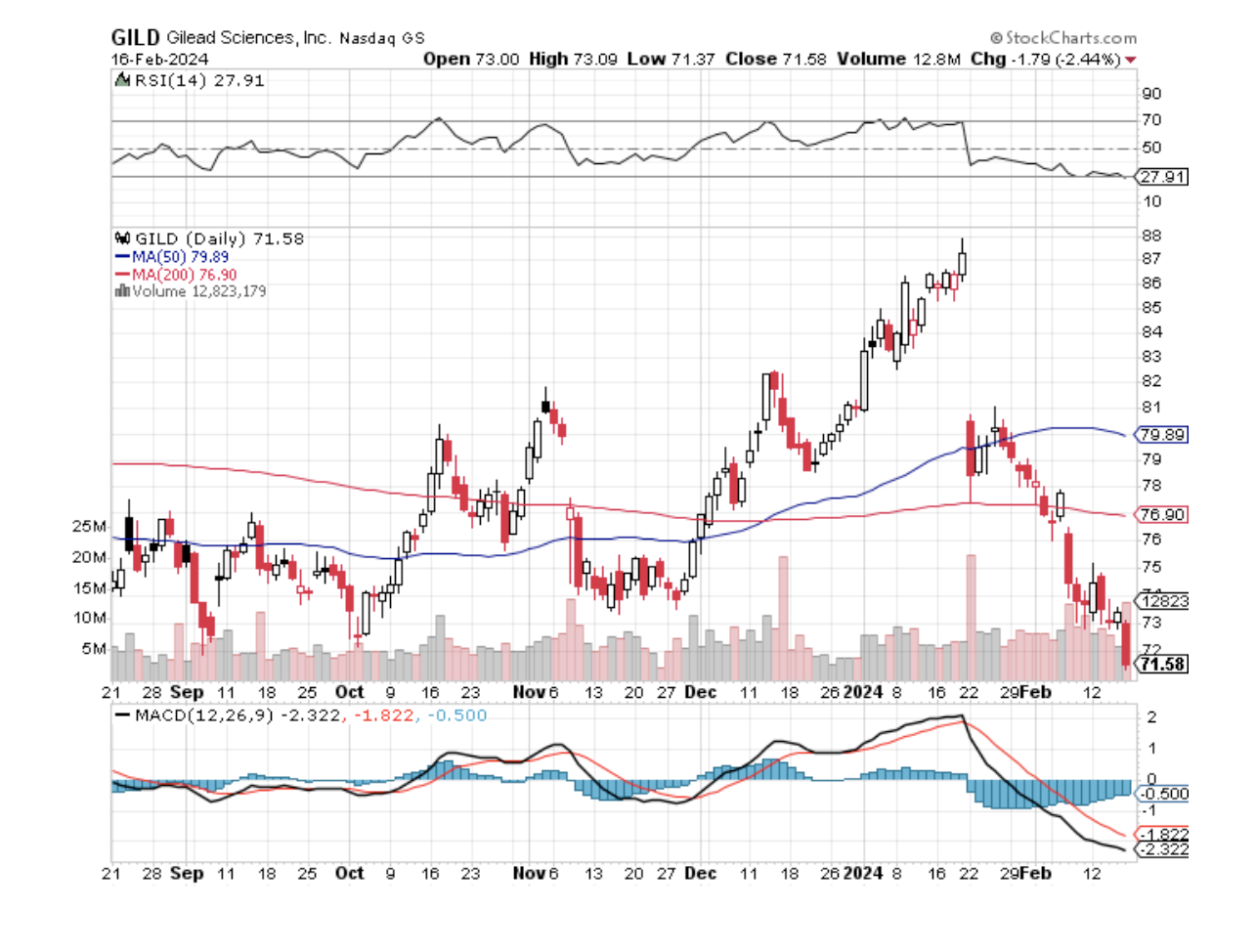From Bland To Bold
So, Gilead Sciences (GILD) dropped their Q4 2023 bombshell earlier this month, and it was kind of like expecting a gourmet meal and getting airplane food instead. Their product sales were underwhelming, not budging an inch year-on-year, and even took a tiny step back quarter-to-quarter.
Now, if you're like me, hoping for some spicy growth forecasts for 2024, you'd be left with a bland taste in your mouth. The market seemed to agree, with Gilead's shares taking a nearly 10% nosedive post-announcement. But, let's not judge a book by its cover just yet.
Peeking under the hood, Gilead's story gets a bit more colorful. Looking closer feels like discovering a hidden layer of nougat in a seemingly plain chocolate bar.
Sure, Veklury, their COVID-19 therapy, didn't get a standing ovation this time around, but let's not forget how it was the belle of the ball when the pandemic hit. Fast forward, and it has turned into that party guest who overstayed their welcome, with Gilead's top-line growth itching for the door.
Nevertheless, all's not gloomy in Gilead's kingdom. Their HIV franchise, led by the star, Biktarvy, is hogging the limelight with a 47% market share in the U.S. That's nearly half the patients on HIV meds swearing by Biktarvy.
Meanwhile, their oncology lineup is also stepping up its game, and with 61 programs in the pipeline, including 19 in phase 3 studies, it's like Gilead's got a magic potion brewing.
Now, for dividend lovers, Gilead's continues to be that reliable friend who always shows up. Despite the pandemic's chaos, they've been upping their dividend game by 19% since 2019, boasting a comfy 3.9% yield. Talk about a silver lining.
That’s not all, though. Just when you thought Gilead would take their ball and go home, they pull a $4.3 billion rabbit out of their hat, announcing they're buying CymaBay Therapeutics (CBAY) and aiming to seal the deal by Q3 2024.
Why? Because CymaBay's working on seladelpar, a potential game-changer for liver disease. And the cherry on top? Seladelpar got a VIP pass from the FDA for a priority review for Primary Biliary Cholangitis (PBC), with the red carpet rollout set for August 14.
Meanwhile, seladelpar's revenue is projected to hit the sweet spot of around $768 million by 2028. Needless to say, this could be the new blockbuster Gilead's been looking for.
In terms of competitors in this field, Gilead would most likely go head-to-head against giants like Madrigal Pharmaceuticals (MDGL) and Akero Therapeutics (AKRO). Both are also making waves with their NASH (non-alcoholic steatohepatitis) fighters, scoring double-digit gains.
Aside from these more widely recognized names, Inventiva (IVA), 89bio (ETNB), Genfit (GNFT), Sagimet Biosciences (SGMT), and the underdog CohBar (CWBR) are all in the race as well, turning heads with their own NASH breakthroughs.
Despite all the excitement, Gilead had a couple of stumbling blocks with their other drugs, which might have contributed to their stock's slip n' slide. Yet, the company’s leadership seems unfazed, especially about the concerns surrounding their cancer drug, Trodelvy. It's like they’re saying, "Keep calm and carry on," betting big on its future.
Overall, Gilead's multi-billion bet on CymaBay and seladelpar is a bold move, aiming to beef up their liver disease creds. With a market cap lounging at $91.80 billion and eyes set on a steady climb to $28.71 billion by 2026, this biotech is no longer just looking to play the game; they're trying to change the rules.
So, what's my take? Pour yourself a glass of whatever you fancy, and let's watch how this unfolds before making any moves. Gilead's foray into new territories with seladelpar is a mix of high stakes and high hopes. It's a bit of a rollercoaster, but hey, that's what makes the market so thrilling, right?



